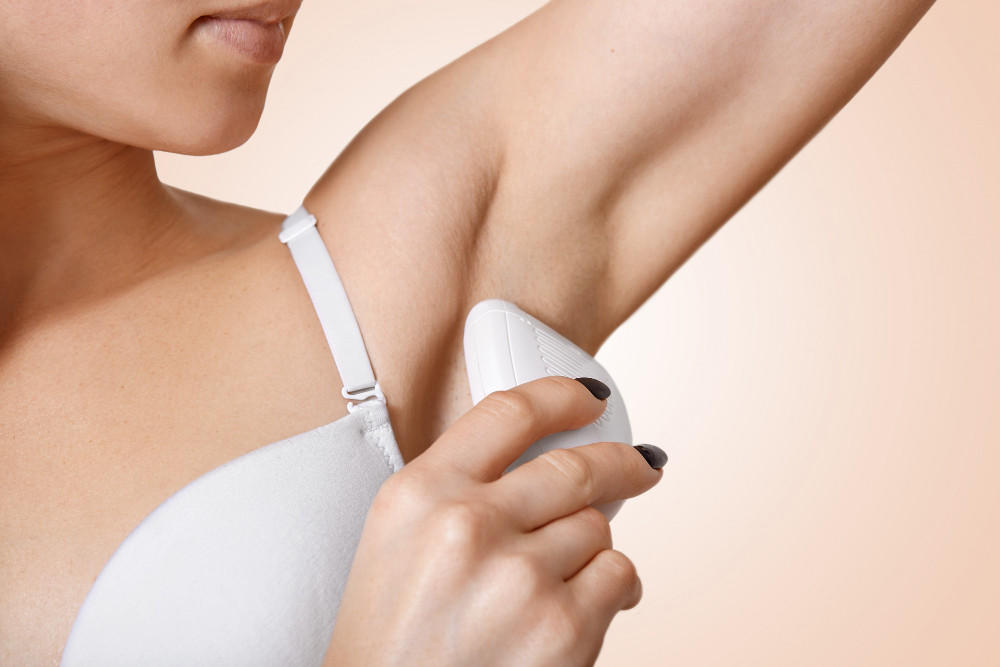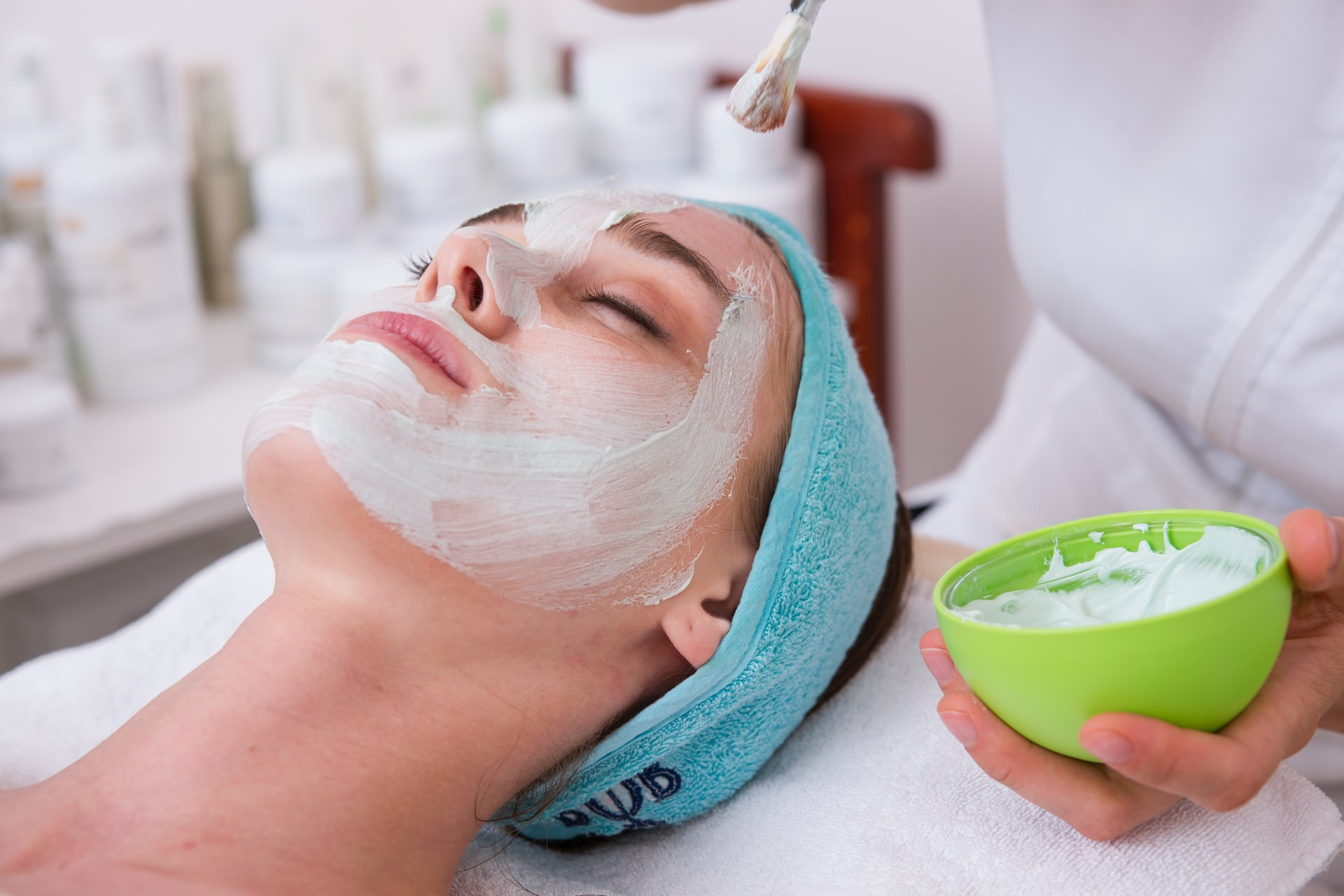Deodoran dikenal sebagai produk kecantikan yang mengatasi bau badan tidak sedap. Namun saat ini banyak orang yang beralih ke penggunaan bahan alami untuk mengatasi bau badan seperti baking soda. Efektifkah penggunaan baking soda sebagai pengganti deodoran? Simak ulasannya berikut ini.
Manfaat dan Risiko Baking Soda sebagai Deodoran
Baking soda telah lama digunakan sebagai alat pembersih pada rumah tangga. Baking soda banyak digunakan untuk membersihkan peralatan dapur seperti alat memasak, pipa dan saluran air, membersihkan lantai kamar mandi, membersihkan pakaian dan menghilangkan bau pada lemari pendingin.
Baking soda dikenal memiliki manfaat antimikroba penyebab bau tidak sedap. Kemampuan ini menyebabkan baking soda bukan hanya dimanfaatkan untuk membersihkan perlengkapan rumah tangga namun juga untuk menggantikan deodoran yang banyak beredar di pasaran.
Untuk menggunakan baking soda sebagai pengganti deodoran, caranya cukup mudah, yaitu:
- Campurkan sekitar 1/4 sendok teh soda kue dengan sedikit air hangat dalam wadah hingga membentuk pasta
- Oleskan pasta ke ketiak, tepuk-tepuk lembut ke kulit dengan ujung jari
- Pastikan pasta benar-benar kering sebelum menggunakan pakaian
Baca Juga: Benarkah Penggunaan Deodoran dapat Memicu Kanker?
Banyak masyarakat menganggap baking soda lebih aman digunakan untuk deodoran karena penggunaan deodoran dianggap dapat memicu bahaya bagi kesehatan seperti:
- Risiko kanker payudara dan kanker lainnya akibat kandungan aluminium di dalamnya
- Deodoran mengandung paraben yang dapat memicu kanker
- Kandungan triclosan pada deodoran dapat memicu gangguan hormon
- Zat tambahan lain dapat memicu iritasi
Menurut para ahli, masih diperlukan penelitian lebih lanjut mengenai bahaya penggunaan deodoran terhadap risiko kanker. Begitu juga dengan efektivitas penggunaan baking soda sebagai penggunaan deodoran.
Meskipun baking soda dianggap memiliki manfaat untuk menghilangkan bau badan, namun manfaat ini dapat memicu iritasi pada pemilik kulit sensitif. Dilansir dari Medical News Today, penelitian menunjukkan bahwa penggunaan bahan alami tidak selalu lebih baik atau lebih aman. Sebuah penelitian di tahun 2016 para peneliti menganalisis daftar bahan dari 100 produk perawatan pribadi alami, termasuk deodoran. Penelitian tersebut mengungkapkan bahwa produk alami mengandung bahan-bahan yang berpotensi menyebabkan iritasi sama banyaknya dengan produk konvensional.
Beberapa risiko yang dapat muncul antara lain:
- Kulit kemerahan
- Ruam
- Gatal
- Kulit pecah-pecah
Para ahli juga mengingatkan bahwa saat ini banyak produk yang menggunakan bahan alami tidak mencantumkan risiko dari penggunaan bahan tersebut. Untuk itu sebaiknya konsumen tetap harus berhati-hati saat memilih produk perawatan pribadi yang memiliki klaim bahan alami atau organik, termasuk deodoran.
Baca Juga: Sama-Sama Mengurangi Bau Badan, Ini Beda Deodoran dan Antiperspiran
Cara Menghilangkan Bau Badan
Pada dasarnya keringat seseorang tidak berbau. Bau badan terbentuk akibat keringan bersentuhan dengan bakteri di kulit. Bau badan bisa beragam, seperti asam, tajam atau bau bawang, tergantung dari bakteri yang terdapat di tubuh dan bagaimana bakteri tersebut berinteraksi dengan keringat.
Perawatan untuk bau badan bergantung pada penyebab utamanya. Beberapa perawatan untuk bau badan dapat mencakup:
- Menjaga kebersihan pribadi dengan rajin mandi atau mendi menggunakan sabun antibakteri
- Cuci pakaian secara teratur dan kenakan pakaian bersih
- Gunakan pakaian longgar berbahan katun
- Mengurangi konsumsi makanan yang menimbulkan bau tidak sedap
- Mengelola stres dengan baik
- Suntik botox
- Obat resep dapat mencegah keringat
Untuk kasus bau badan ringan, Anda dapat mengatasinya dengan perawatan rumahan. Namun untuk kasus bau badan serius, dokter dapat meresepkan antibakteri, antiperspiran atau prosedur lainnya untuk mencegah keringat berlebih dan pertumbuhan bakteri berlebihan.
Baking soda memiliki berbagai manfaat bagi perawatan kebersihan rumah tangga hingga sebagai alternatif deodoran. Namun penggunaannya dapat menyebabkan kulit semakin kering. Jika memiliki masalah dengan bau badan atau masalah kecantikan lainnya Anda bisa berkonsultasi ke dokter atau manfaatkan fitur konsultasi pada aplikasi Ai Care.
Mau tahu tips dan trik kesehatan, pertolongan pertama, dan home remedies lainnya? Cek di sini, ya!
- dr. Monica Salim
Ferchak, D. (2023). Everything you need to know about armpit detox. Available from: https://www.medicalnewstoday.com/articles/319624
Cherney, K. (2019). Baking Soda as a Deodorant: What Are the Benefits and Side Effects?. Available from: https://www.healthline.com/health/baking-soda-deodorant
Robinson, M., and Hovay, K. (2023). Are Deodorants With Aluminum Bad for You, and Should You Switch to Natural?. Available from: https://www.goodrx.com/well-being/alternative-treatments/the-benefits-of-moving-to-aluminum-free-more-natural-deodorants-and-perspirants
Cleveland Clinic, Body Odor. Available from: https://my.clevelandclinic.org/health/symptoms/17865-body-odor











